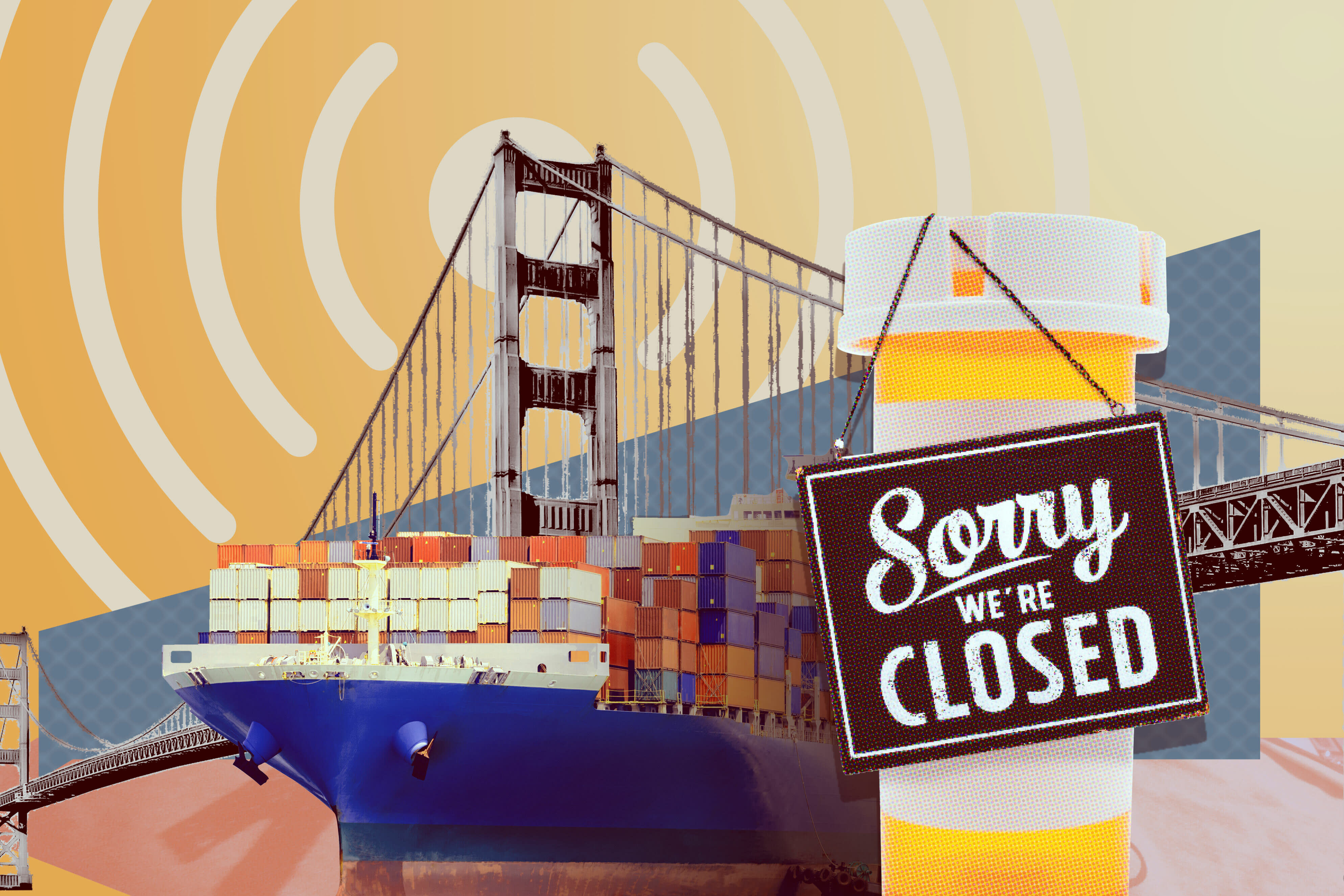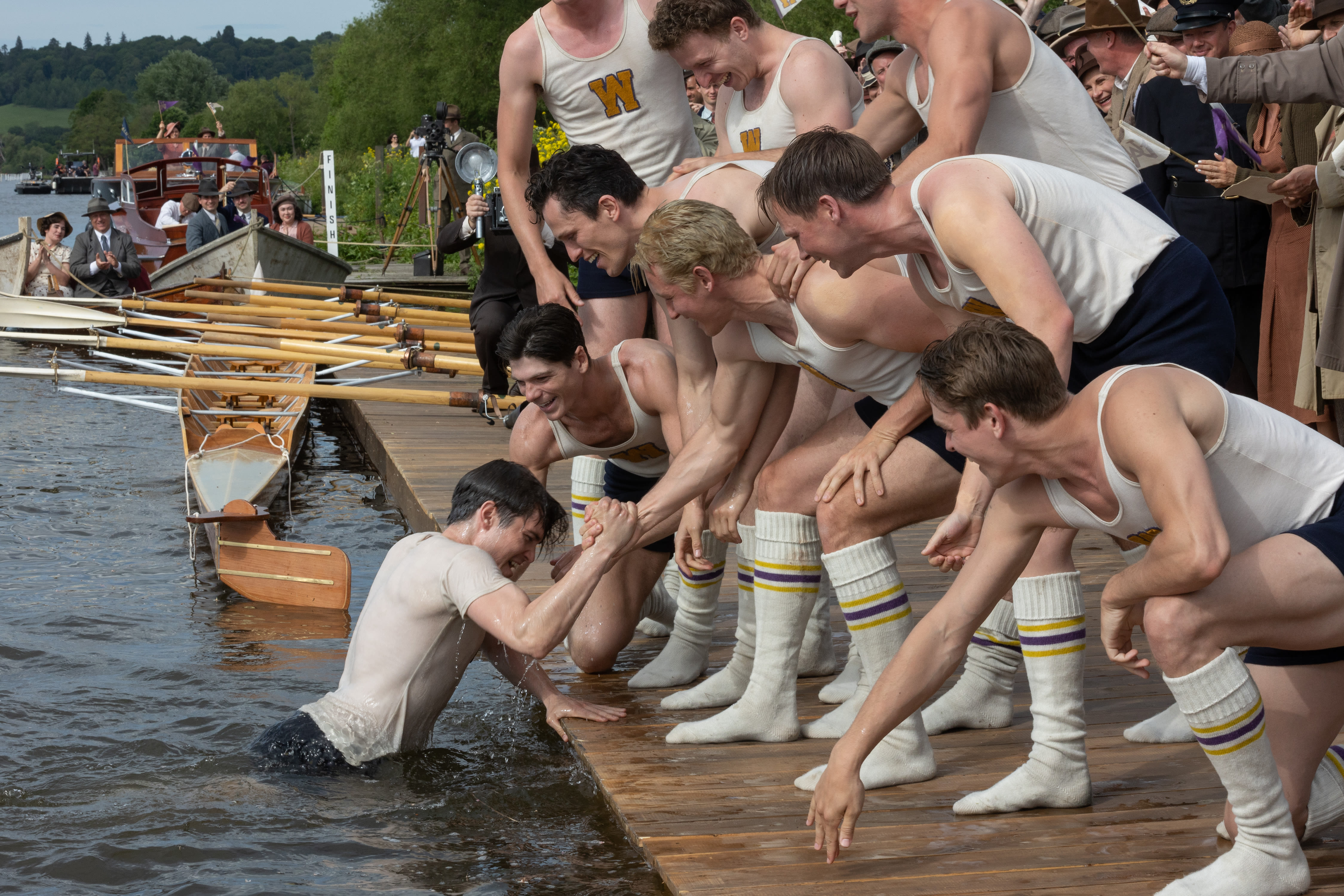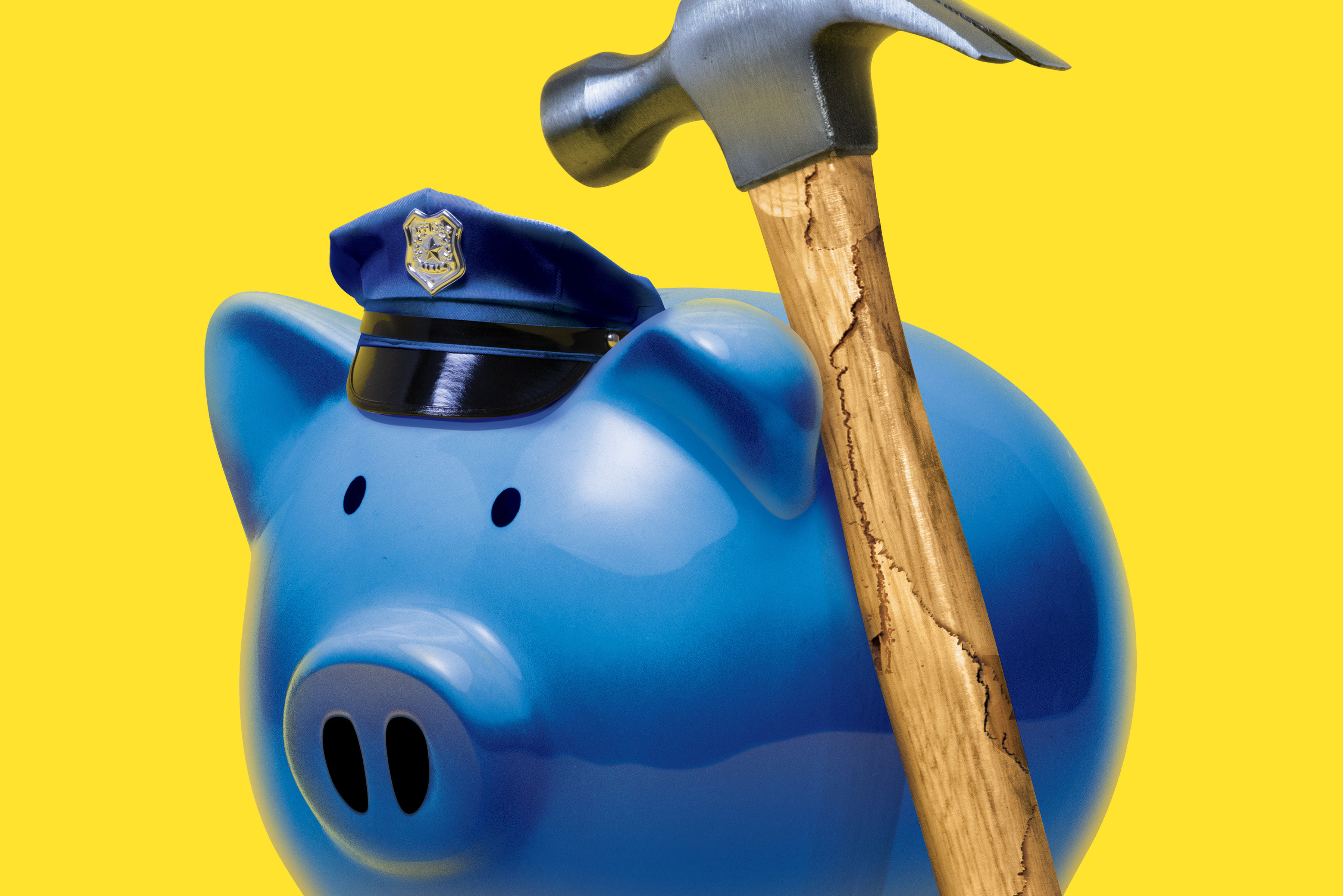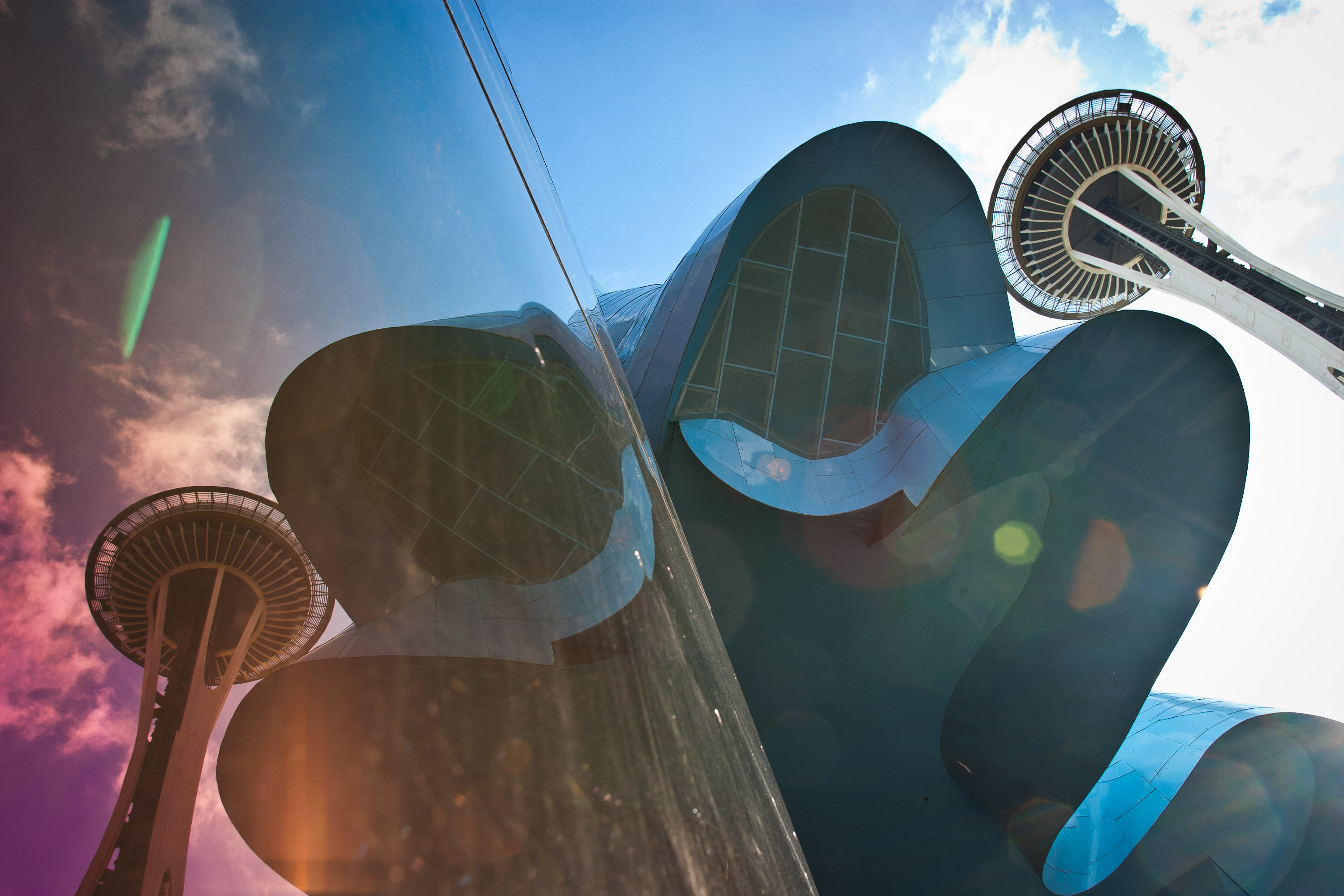Jenny Durkan on Those Missing Texts, CHOP, and Covid
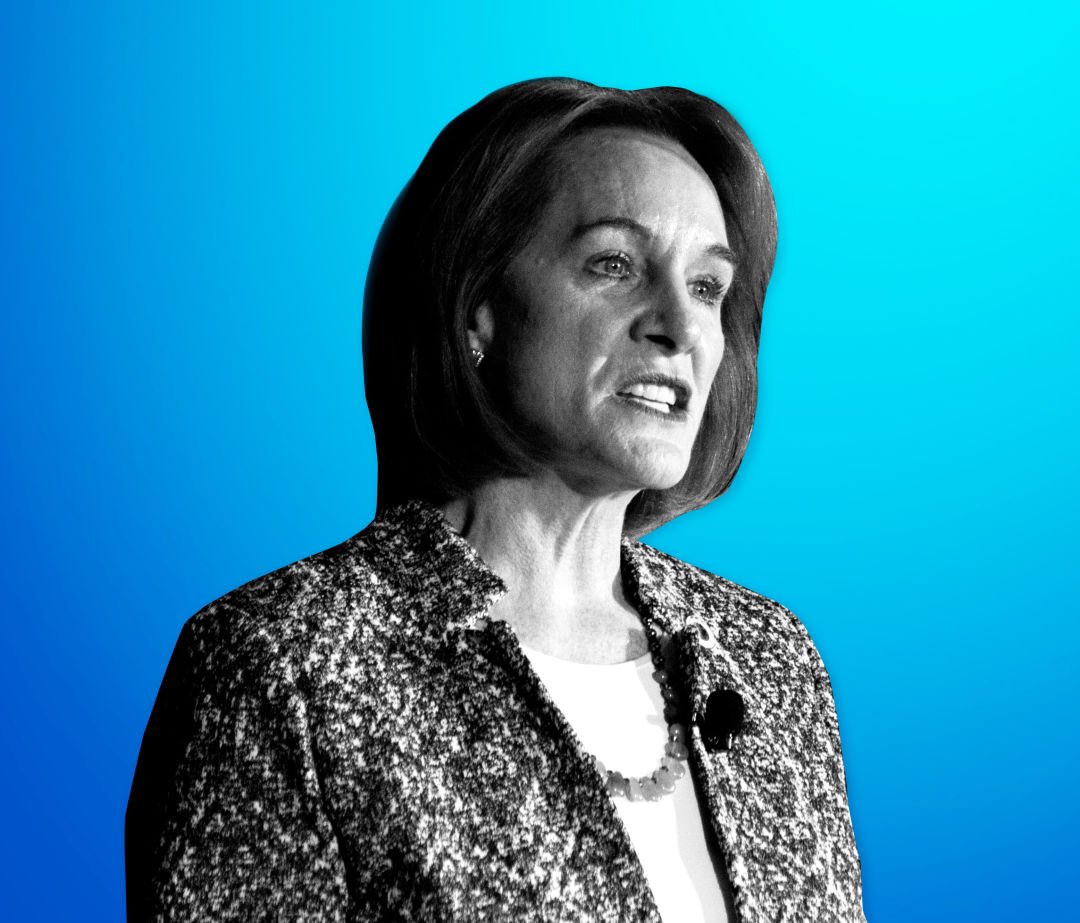
Jenny Durkan vowed to be a “fierce and gentle” leader of Seattle after routing Cary Moon in the 2017 mayoral election. The former U.S. attorney swiftly showed her commitment to the city's future, signing a pledge to make community college free for local high school students less than 24 hours after assuming her new gig.
But three years later, the Seattle-born politician opted to forgo another term in the city's top post. Amid the coronavirus pandemic, she said, she wanted to focus on fulfilling the duties of her job, not politicizing them.
By then Durkan knew all too well just how divisive that job could be. In June of 2020, the mayor drew criticism from both sides of the political aisle for how her police department responded to Black Lives Matter protests and the creation of CHOP. Even as she departs her office, multiple lawsuits against the city linger, including one tied to missing text messages from Durkan and others during that tumultuous summer.
Durkan says her family has received death threats in the year-plus since the protests began. Still, she hasn't lost her sense of humor. On a recent Friday morning, a copy of The Worst-Case Scenario Survival Handbook sat between Profiles in Courage and The Firebrand and the First Lady atop a coffee table inside her City Hall office.
With Bruce Harrell set to take over this January, Durkan is in the process of moving out. A toy truck and other items to busy visitors' children will soon have to be packed up, as will the #SonicsForever poster outside her door.
Durkan recently took a break from her mayoral move-out to reflect on the last four years, offering her thoughts on the city’s Covid response, defunding the police, and, yes, those missing texts. The interview has been edited and condensed for clarity.
One of our magazine's recent group interviews focused on the difficulties of being Seattle mayor. A lot of the commentary was, yeah, it's kind of an impossible job. So let's be real. Are you relieved to be leaving?
I wouldn't say relieved. It's interesting because when you get to the end, and I talked to—I think it was governor [Gary] Locke—and I was talking to him about some of the things he did. And he said, I'm proud of the things we've done, but what keeps me up are the things we didn't quite get done. And I think you always have that feeling at the end. Covid and the pandemic so disrupted everything else we were doing and eclipsed all our other work. Obviously, it defined my being mayor.
We were the first. Those early days were, I think, fair to say, terrifying. We had no road map, not really any federal assistance, and just really had to find our own path forward. But I think that when history is written, they're gonna say, We're the city that got it right. And each step of the way, we were doing innovative projects, both how do you deliver city services to how do you get testing, then how do you stand up a testing system, to then vaccinations. And I'm very proud that we have the lowest rate of disease, hospitalizations, and mortality rates of any city in America, which is remarkable.
The other period that will define your term is June of 2020. Even as you're leaving, your term is still being litigated. There are multiple lawsuits against the city for how the CHOP was handled and the protests and the shooting of Horace Lorenzo Anderson. How would you respond to people who say the city handled that period of time poorly?
So I think there's two parts of it. I think the most important thing coming out of that period of time is, did you take steps to address the reasons people were protesting in the first place? What systemic changes did you make? Because that's really the mark of what are you doing and what comes out of that period. And I think that we've done remarkable things together in the city to really address what came out of those protests and why people were protesting. As mayor, I committed $100 million to be invested in community-based organizations in the BIPOC community, to really get at the reasons why people were protesting.
We just can't deny the impacts of systemic racism on every institution. Until we have healthy communities, we won't have safe communities. And to have healthy communities, we have to be able to have investment in things like access to pre-K, health care, affordable housing, wealth-building, generational wealth, getting at those root causes. I think our response to that—if you look at the programs now we've put in place, the task force I put together came with recommendations, we've now committed $30 million to just those. We also committed a significant sum just to infuse into community-based organizations that can have that generational impact. We turned over properties to the community that were very significant to those communities, put in place anti-displacement orders, worked on gentrification.
So I think the most important thing coming out of summer 2020 is: Did we listen, and are we making the changes we needed to make? And I think that's really the most critical thing that people need to focus on. Because that's what people will remember in three years, five years, and 20 years. Do the kids today have different opportunities? If you look at our preschool program, our Seattle Promise program, those things are really crafted to address those systemic inequities, and they're remarkably successful.
But I am curious, during that period of time, there were lawsuits and threats coming from all angles. There was “Seattle is an anarchist jurisdiction,” and then there was, “the police are being too heavy-handed” or what have you. How did you balance those competing ideas during that time? What was your state of mind?
I think it was an unprecedented period of time and challenge for our city, for me as mayor, and for businesses and residents. You have to remember, we were a number of months into the pandemic. So people were very depleted to begin with. Businesses and residents had significant challenges. In June of 2020, most of the businesses on Capitol Hill were still closed because of the pandemic. So you had already a really tired and depleted population. People were just exhausted. And then with the civil rights reckoning coming on top of that, to navigate both what the president was doing, which was escalating things at every step, and his favorite media network escalating things to the point where they even had false photos depicting Seattle for what it wasn't, to the real necessity to mediate between this ongoing conflict between protesters and police. Because Seattle police had never really experienced that kind of protest against policing. They'd seen protests of other types, but even WTO, they were protesting an organization.
It was just an incredibly dynamic, sometimes volatile combination. And what I had to focus on as mayor was, number one, we had to balance a number of interests. One: First Amendment right to protest is ingrained in who we are as a society, and you have to be able to allow and protect people's expression of First Amendment rights. At the same time, you have to provide for the safety of protesters and businesses and residents to make sure that you're looking at how to keep them safe, and not just from what might happen with the protest activity, but because we're in the middle of a pandemic.
[Later, Durkan added the following.] Our approaches to crowd management didn't work. And they didn't work anywhere. I think 100 cities ended up deploying tear gas. And no one has the answer to: What do you do when you have significant numbers of lawful protesters, who have every right to be exercising their First Amendment, and some people within that protest who are doing criminal conduct? How can you safely extricate them or respond to them and not infringe upon the rights of the people that are protesting lawfully? And that's going to be the hardest thing for people to do.
They shifted their tactics. And we know they haven't used many of those less-than-lethal tools for a very extended period of time now. But nobody liked what happened there. The police didn't like it, the public didn't like it, the protesters didn't like it, and there has to be a better path forward.
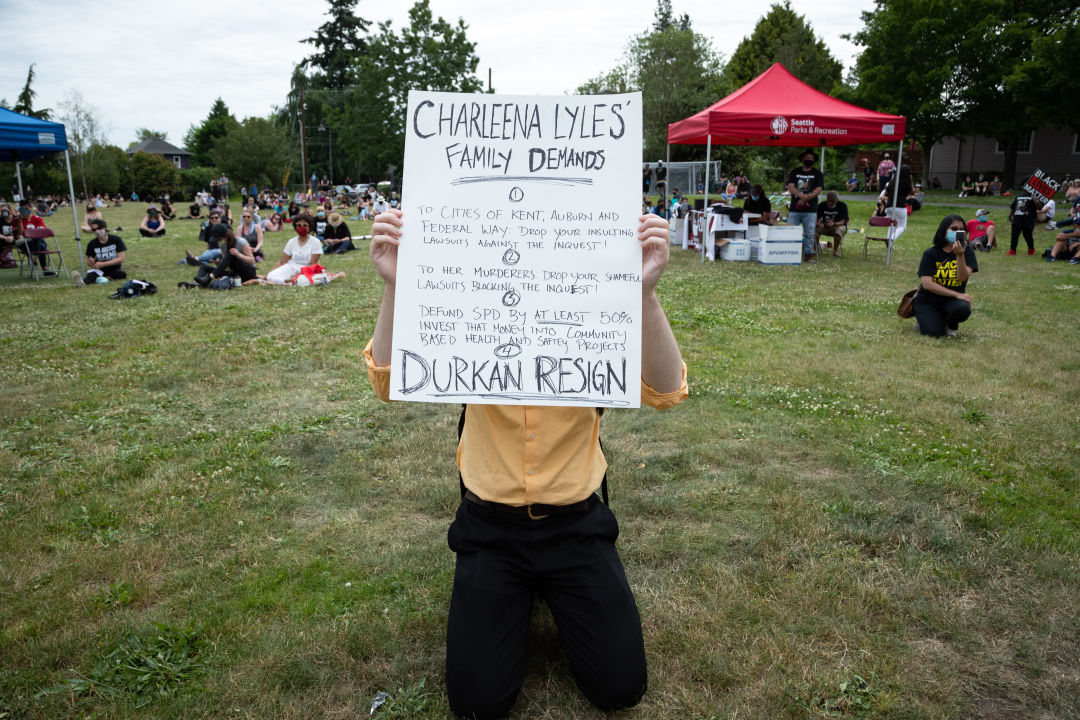
The mayor faced criticism for how she responded to Black Lives Matter protests.
Image: Shutterstock By VDB Photos
During this period, there are text messages missing from you, [former police chief Carmen] Best, and some other folks. What happened to your text messages?
They're looking at—there's the litigation, there's forensic reports [to look] at that's not completed. Really what gets lost in this is, I always understood and believed that the city was collecting and archiving all of our electronic information, calendars, emails, text messages, and the like. And that through the process now—because if you send a text to me, there's a copy on my phone, a copy on your phone. So we've been in the process of collecting all the text messages that we would have sent to other people, and have provided hundreds and hundreds of those. So they’re being re-created.
In addition to that, [we’re] trying to solve for the solution to make sure that that kind of data loss can't happen again, putting in both technological solutions and system solutions. We're trying to holistically, first, get the information so people can have access to it. Second, you know, put things in place so it doesn't happen again. I think that that's really going to be the key. And I think that, at the end of the day, by the time all the litigation is done, if not all, the vast majority of those texts will be available for people to review.
But what exactly happened?
It's in litigation, the forensic report is looking at it fully. And that's the status right now.
[Durkan later added a bit more.] I've made really clear before that not only did I not purposely delete any messages, or these messages, but I truly believe that they were being held. And as soon as I found out, I said, Okay, let's see what we can do to go find another place because I believe the public has a right to know. And I've operated on that ever since I've been mayor, that everything I do in a sense is the public's.
Can you at least understand how the public might feel that this is suspicious, that your texts and Chief Best’s texts are missing during this period of time, when it was such a contentious and controversial period?
I do see that, but I think it's incumbent upon the press and others that a number of things are true. Number one, during this time, I think Chief Best and I appeared before the press, dozens of times. We gave multiple press conferences, sometimes in a day. All of what was happening was happening in real time. We took questions about what we were doing and why we were doing it…Last summer, for example, we released a statement on what happened in the East Precinct. And there's now been a thorough investigation both by KUOW and the Office of Police Accountability that confirmed that what we said is exactly what happened, and [it] had more detail about the names of the individuals involved.
I think it put to rest the questions that people had, that they somehow thought either that I could order people out of the precinct or we were going to abandon the precinct. It's really clear that having that information shows that what we said is true: Because of the confluence of events, and the determination to really want to deescalate those conflicts every night between the police and the protesters, the Seattle Police Department kept taking different strategies and tactics. They moved the line back. They used different types of barriers. None of those things worked. And we saw on the night of the seventh, again, Chief Best made the decision to deploy tear gas. It was clear things were continuing to escalate, so the decision was made to remove those barriers.
Once that happened, the police…wanted to make sure that they could protect the precinct should it be targeted by fire or overrun by protesters or anything like that. So they removed anything—confidential information, weapons—from there. They were going to construct a fence around it at the perimeter, put the foam on the building so it couldn't catch fire. But when they got there, they determined they couldn't put the fence around the perimeter, so they had to attach it to the building. They couldn’t foam down the building. And the police commander on site said, I don't think it's safe for people to be staying in this precinct right now. We're going to take them out, stage nearby. But the plan was always to come back.
So, again, I think that information is available. I think that in every area where people might have questions about what happened, there is a lot of information there about what happened. I don't think there's information that's being kept from the public.
Did you feel that you could run again, after everything that had happened?
Yes, I think I could have run, and I think I would have won. And I think these election results demonstrate that. The main conflicts that I had with city council related primarily to policing and their stated position they were going to defund the police by 50 percent. And I knew that wasn't feasible. You couldn't protect public safety and do that. You have to stand up alternatives, and I've been involved in standing up alternatives literally my whole career. I helped form the first drug court we had in the region, the first federal drug court, in addition to that the King County mental health court. We started Health One before the pandemic…to have a different alternative to policing, to be able to roll to some of these very important crisis calls.
So, yes, we need alternatives. But we also need police. If you look at the totality of work that we do, the budget that just passed was about $7.2 billion. The areas that the city council and I disagreed on was probably in the neighborhood of 20 to 40 million. So there were philosophical differences on policing. But again, I think these elections show that the majority of the city agrees with the positions I had, which is: Yes, you need alternatives, but you also need a sufficient number of police.
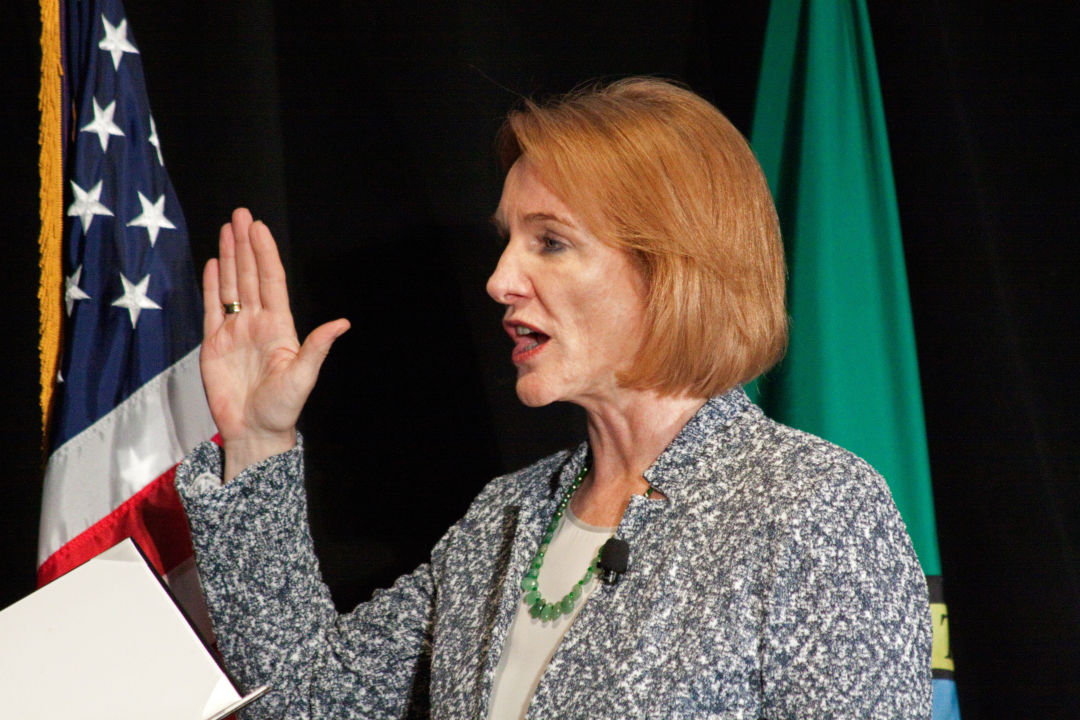
Durkan was the first woman to hold the office in almost a century.
Image: Kevin Schofield / Flickr CC
When did you decide not to run for reelection, and what went into that decision?
I announced it on December 7 (of 2020), and I was having some conversations and reflecting on what we needed to do in the coming year. I believed at the time, and I think it was the right decision, that I couldn’t both do the job and run for the job. Because, remember, vaccines hadn’t happened yet, right? We knew we were going to have to stand up a monumental vaccination program. We knew we were going to have to do some things on public safety and homelessness. And we had to try to take those issues out of the political lens so that people could work and collaborate together. And the nature of politics is, is that if you are running for an office and people are running against you, everything you do is viewed through that political prism.
I really believe for Seattle, there was so much work that needed to be done in addressing the pandemic, trying to get an economic recovery, deal with our public safety issues, deal with the difficult issues around homelessness and standing up the new regional authority, which remember, again, we didn't even have a head of that yet, that it was really important to be able to do those things and do it in the best way possible for the city and not have it politicized.
Other officials have run during this period of time—had their jobs and ran during this Covid period. You just felt you couldn't handle both?
No, don't ever write that. I could handle both. Both would not be right for the city of Seattle.
As you're reflecting now on these last four years, what are the accomplishments that you feel like, I leave here knowing I did this.
There's a number. Number one, Covid. That eclipsed everything and was job number one for the mayor of the city of Seattle, was getting us through Covid-19, both the impacts it had economically on communities, and the services we delivered, and being able to stand up the systems that we did, and I think that we led the nation in it. And we did it because of the choices that I and others made. And also setting a new framework for how you can collaborate not just across governments, but together with the health care system and private businesses. It took an unprecedented level of collaboration between inside government, outside government, and different types of government. And that required, you know, a daily type of leadership.
Give you an example. We have a really good program serving our seniors. It developed in the ’70s and ’80s. But a good portion of that was delivered through senior centers. Well, suddenly, all your senior centers close. Those seniors now are not just deprived of the engagement with other seniors, and the classes we were operating; for many of them, it was the only meal they got.
So closing down senior centers had this cascading effect on the health of those seniors. We had to stand up, almost overnight, a hot meal delivery service. Well that's not something the city usually does, you know, so we get Lumen Field to give us their kitchens. We get FareStart because they had to close their restaurants to prepare the food. We get someone else to do the delivery system.
We had to look at that level, and then we had to look at the big level of: If you have a population of 780,000 people, and you want to get to a 70 percent vaccination rate as quickly as you can to provide some buffer against the pandemic so you think you can open up, that's a huge undertaking at a scale we've never done before. And the city had no access to vaccines themselves. We didn't get it direct distribution, unlike cities like San Francisco and Los Angeles…. I think the pandemic, both how we did it and the results, are an incredible legacy for this city.
When we come out of this, our downtown and some of our other businesses have been just hugely set back. We're not only going to have to rebuild here; we're going to be competing against every major city in America on how we redefine our downtown. So while we were in Covid, [it was] really important to be thinking about: What are those big civic infrastructure investment type projects that you can continue moving forward, that will give you an advantage as a city? Climate Pledge Arena, really critical for us to be able to get that done and it took a lot of work to find ways that that workforce could work safely and continue to work during Covid. Waterfront Park, again, that's going to redefine the city.
I think the Seattle Promise program, for the four years, will be one of the most important things that we did, increasing the size of pre-K… We had [about] 1,000 students enrolled [in Seattle Promise] last year... It's not just tuition. It's the counseling when they're in high school. And when they get there to make sure that they really can make the most of it. It's working with our employer base to say, what do you need from employees so they can get good family-wage jobs coming out of it?.... I think it will be a program that really does start to change the face of opportunity for the city.
One more legacy thing that I'll say is, when I came in, and we still have [a need], but affordable housing was just a critical thing…. My administration has announced affordable housing of $2.5 billion, thousands of new units, including 1,300 units for permanent supportive housing for people experiencing homelessness. It will be the largest generation of affordable housing, and it's in every part of the city.
What did you learn about the city that you didn't know before taking this job?
That the city has changed a lot. We grew so rapidly in such a short period of time. Amazon changed the face of the city, bringing in so many new younger employees, many of them very urban. We are now a city of mostly renters, whereas before we were largely a city of homeowners, and that changes the dynamic. And it makes city government have to address the realities for that.
Part of it is, they're renting because we have a much more fluid population, too. People will come here, they'll live for three to five years, or take a job for two years and then move to San Francisco or Austin or wherever. We saw so many of the same people move when the pandemic hit—they left to work from a remote location. Before Seattle had—in the ’70s, we lost such a significant part of our population—but Seattle before had been relatively stable in terms of population shifts.
I believe the mayor traditionally leaves a note for the next mayor, in the desk there. What might you say to Bruce Harrell?
Traditionally, we never say either [laughs].
Speaking broadly, then, what advice do you have?
I've talked to Bruce. I think there are some incredible challenges that remain. We're not done with a pandemic. And he's going to have to continue to figure that out, because it affects every part of his job.
There’s still work to be done around policing. He's going have to hire a new police chief. That will bring right to the surface immediately some of those schisms we have in our city, about not just what our department has done before, but what do we want policing to look like in the future? That's going to be right out of the gate…. And on homelessness, he's going to have to have a really strong relationship with the regional authority, because they're going to have hands on so many of the levers that impact his streets in the city.
I will say my number one thing is, even in a pandemic, get out of City Hall. Get out of City Hall, into communities, into the neighborhoods, talk to as many people as you can. I did that from day one.
What’s next for you?
I don't know yet. I'm going to take a break, spend some time with my family, and really try to decompress a little bit. This has been extraordinarily challenging for them and hard on them. The amount of vitriol during this last period of time has been hard, [with] a significant number of legitimate, true death threats and people who want to kill them and me, as well as regular vandalism to our house and harassment. It's been very, very hard on them. Part of it is just to say, Okay, you get to drive now. What do y'all want to do?
